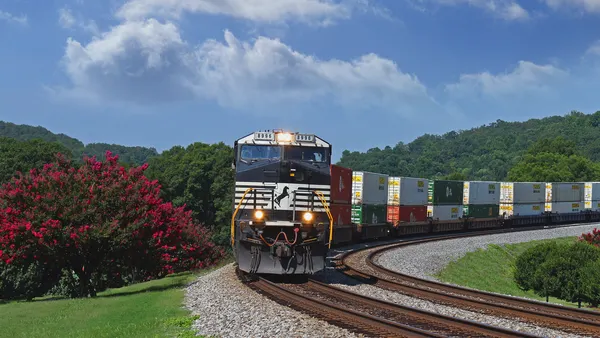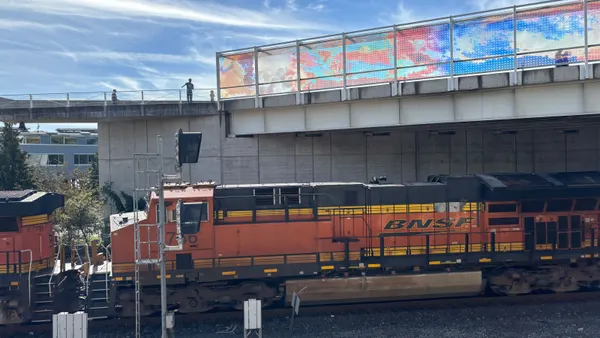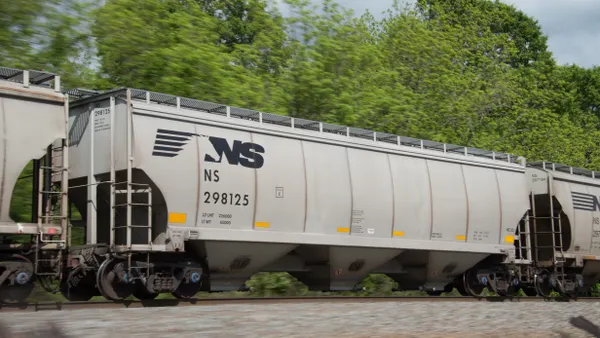Dive Brief:
- Canadian Pacific Kansas City reached a multiyear agreement to handle rail shipments for Knight-Swift’s service in Mexico, marking the newly formed railroad’s second intermodal deal with a major trucking company in the past week.
- Knight-Swift will transition its Mexico-U.S. traffic starting in mid-May, according to a Tuesday announcement. CPKC Chief Marketing Officer John Brooks said the deal would provide Knight-Swift customers with increased capacity and “compelling new transportation solutions.”
- The added customer agreement comes just days after the railroad announced another deal it secured with Schneider National, aimed at intermodal service between Chicago and major markets in Mexico.
Dive Insight:
Swift Transportation President and Knight-Swift CFO Adam Miller said in a news release that its growing LTL offering will benefit from the newly created railroad.
Knight-Swift is looking to help facilitate the railroad’s Mexico-to-Canada territory while the carrier itself can service its own customers in “new and different ways.”
The railroad, which received approval in March to form the first single-line railway from Canada to Mexico, plans to divert 64,000 longhaul truck shipments to rail annually.
Knight-Swift also said the deal would benefit its TransMex team. Its subsidiary included about 1,500 drivers in Mexico as of Dec. 31 represented by a union, and it was unclear whether any changes would occur with the carrier’s staffing there as a result of the CPKC deal.
A Surface Transportation Board application for the railroad projected in 2021 that intermodal terminals in Mexico would see notable volume growth under the deal.
“The diversion of trucks to intermodal is expected to reduce long-haul truck miles in the United States by 86.2 million annually,” the application said. “The reduction of long-haul truck miles in Canada is expected to be 1.8 million, and in Mexico 14.9 million.”
While the U.S. could see an increase of an additional 3.4 million miles in local dray to ramps, the railroad application only stated that Canada and Mexico would have a “small increase in local dray miles in each country.”
















